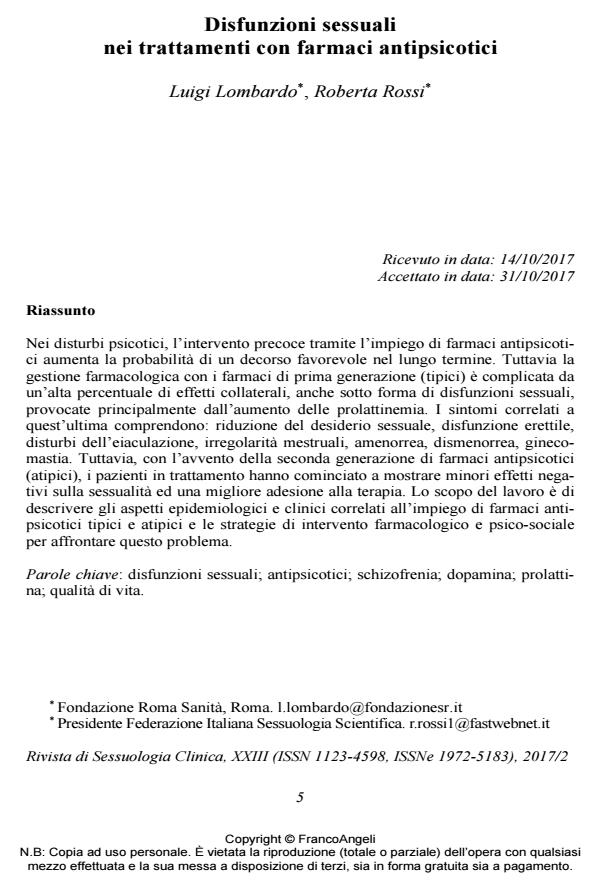Sexual dysfuntions in antipsychotic drugs treatements
Journal title RIVISTA DI SESSUOLOGIA CLINICA
Author/s Luigi Lombardo, Roberta Rossi
Publishing Year 2017 Issue 2017/2
Language Italian Pages 18 P. 5-22 File size 220 KB
DOI 10.3280/RSC2017-002001
DOI is like a bar code for intellectual property: to have more infomation
click here
Below, you can see the article first page
If you want to buy this article in PDF format, you can do it, following the instructions to buy download credits

FrancoAngeli is member of Publishers International Linking Association, Inc (PILA), a not-for-profit association which run the CrossRef service enabling links to and from online scholarly content.
In psychotic disorders, early intevention with antipsychotic medications increase the likelihood of favourable long-term course. However, the farmacologic management especially with first-generation (typical) antipsychotic medications is complicated by a high rate of adverse effects including sexual dysfunctions, mainly through their potential to induce hyperprolactinemia. Prolactine related symptoms include decreased sexual desire, erectile dysfunction, ejaculatory dysfunction, menstrual irregularities, amenorrhea, dysmenorrhea, gynecomastia. However, with the advent of second generation (atypical) antipsychotics, patients receiving these drugs showed less side effects such as sexual dysfunctions and higher level of adherence to treatment. The aim of this review is to describe the epidemiological and clinical features of sexual dysfunctions related to the first and second generation antipsycotic drugs, and the strategies for managing this problem, including pharmacological and psychosocial approaches.
Keywords: Sexual dysfunction; antipsychotics; schizophrenia; dopamine; prolactin, quality of life.
Luigi Lombardo, Roberta Rossi, Disfunzioni sessuali nei trattamenti con farmaci antipsicotici in "RIVISTA DI SESSUOLOGIA CLINICA" 2/2017, pp 5-22, DOI: 10.3280/RSC2017-002001